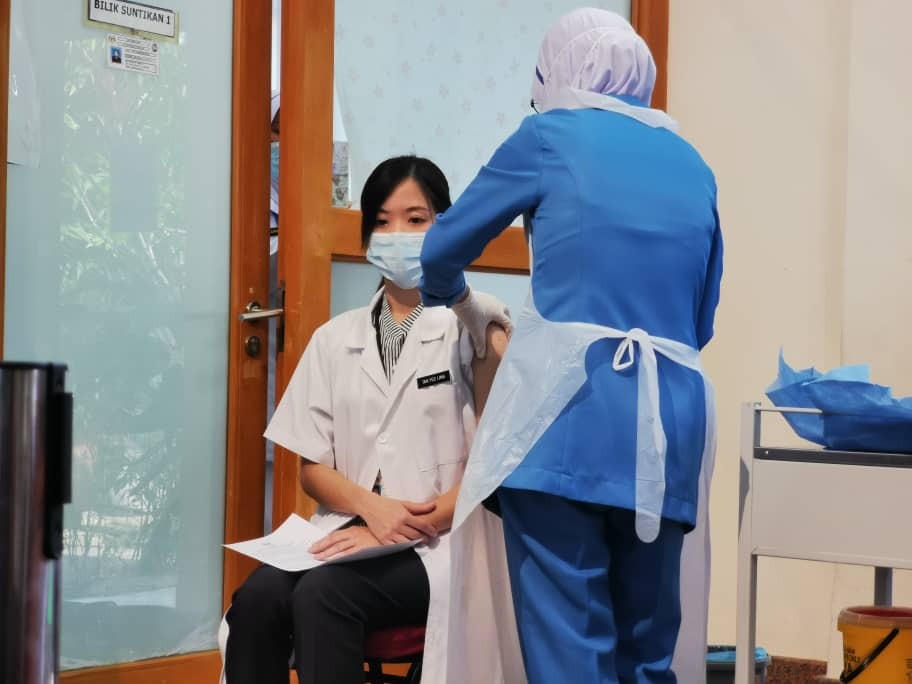The Prime Minister stated on April 1, 2021 that individuals who have received two doses of the Covid-19 vaccine may be allowed to travel interstate or even abroad without restrictions.
Is this prudent at the current level of vaccination in the country?
Bottom Line Of Covid-19 Vaccine
The first real-world effectiveness of the Covid-19 vaccine was reported by Israel, which launched its vaccination programme on December 20, 2020, nine days after the United States Food and Drug Administration authorised the use of the Pfizer vaccine. The vaccine prevented severe disease and hospitalisation.
The estimated vaccine effectiveness was 46 per cent and 92 per cent for documented SARS-CoV-2 infection 14–20 days after the first dose and 7 or more days after the second dose, respectively.
In a media statement on March 11, 2021, the company stated that two weeks after the second dose, the effectiveness was at least 97 per cent against symptomatic Covid-19 cases, hospitalisations, severe and critical hospitalisations, and deaths, and the effectiveness against asymptomatic SARS-CoV-2 infections was 94 per cent.
However, as with everything in medicine, nothing is 100 per cent effective.
The Covid-19 vaccines enable the body’s immune system to counter the virus, if exposed. It offers hope that one may be able to start doing some things which had to be stopped because of the pandemic.
But knowledge about how the vaccines will impact on the spread of Covid-19 has yet to be elucidated.
This is reflected in the United States Centers for Disease Control’s Interim Public Health Recommendations for the fully vaccinated, which advised that one should keep taking precautions, i.e. physical distancing, mask-wearing, frequent handwashing, etc. in public places, or when one is with unvaccinated people from more than one household.
Covid-19 In Chile
Chile’s foresight led to early access to Covid-19 vaccines and the country having the fastest vaccination rate in the Americas.
Vaccination of Chile’s health care workers commenced on Christmas Eve 2020 with the Pfizer vaccine and the population with the Sinovac vaccine at the end of January 2021.
The rapid vaccination drive has resulted in 35.5 per cent of its 19 million population having received one dose of the vaccine and 19.2 per cent fully vaccinated.
Chile, together with Israel and the United Arab Emirates, has one of the best vaccination rates in the world, and was on track to be amongst the first in the world to reach herd immunity.
The impressive vaccination rate contributed to policies and behaviours which led to a surge in March 2021.
Chile opened its borders, eased restrictions on business, and created a permit system for Chileans to go on summer vacation, with more than four million who travelled around the country.
The number of new daily cases of 3,000 in February doubled to more than 6,000 daily in March 2021. There was a surge in deaths, leading to the health care system being close to breaking point with an occupancy rate of 95 per cent of intensive care unit beds and the establishment of overflow mortuaries.
The Chilean government responded by postponing the elections of representatives to draft a new constitution due on April 11, and instituting stringent movement restrictions on March 25, 2021, affecting about 80 per cent of the population.
As the cumulative number of cases exceeded one million, Chile has closed its borders again and tightened an already strict lockdown, which included an evening curfew and a rule which only allows citizens to leave their homes twice a week.
The surge was attributed to the variants from Brazil and the UK, an inefficient contact tracing system, and a false sense of security due to the hype and fanfare about the vaccination programme which lulled the public into dropping their guard. In addition, about a quarter of medical professionals had gone on leave because of exhaustion, mental health problems, and even suicidal ideation.
Claudia Cortés, vice president of the Chilean Society of Infectious Diseases, reportedly stated: “The government was overoptimistic, and there was a mishandling of information around the good initial rollout of vaccines. It seems people got the impression everything is fine now, but there needs to be a clear message that the vaccines are just one part of combatting the pandemic. It does not mean that we can forget the basics like social distancing and wearing masks.”
Health Minister Enrique Paris admitted the government’s mistakes and acknowledged that it should have been more emphatic about conveying that the virus remained a big threat as Chileans became lax about non-pharmaceutical interventions.
Lessons For Malaysia
Chile provides an example that although vaccination may be widespread, it does not prevent future surges of Covid-19 cases.
When there is widespread community spread of Covid-19, as in Malaysia currently, vaccination cannot rein in infections immediately. With the emergence of the new variants, which are more contagious, any significant impact of vaccination can only be seen when the vast majority of the population have been vaccinated.
The level of population immunity required to prevent further outbreaks (“herd immunity”) is still uncertain and may be influenced by the transmissibility of the emerging variants and other factors like the duration of vaccine efficacy.
The immunisation of children below 16-18 years is important as they are capable of developing and spreading Covid-19, but its implementation is only foreseeable in the medium term.
As such, non-pharmaceutical interventions like physical distancing; mask-wearing; frequent hand washing; testing, tracing and isolation will still be needed for at least the medium term.
Whither travel restrictions for the fully vaccinated?

Dr Milton Lum is a past President of the Federation of Private Medical Associations, Malaysia and the Malaysian Medical Association. This article is not intended to replace, dictate or define evaluation by a qualified doctor. The views expressed do not represent that of any organisation the writer is associated with.
- This is the personal opinion of the writer or publication and does not necessarily represent the views of CodeBlue.








